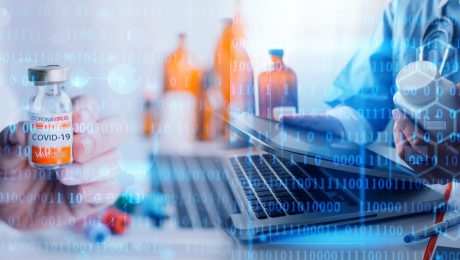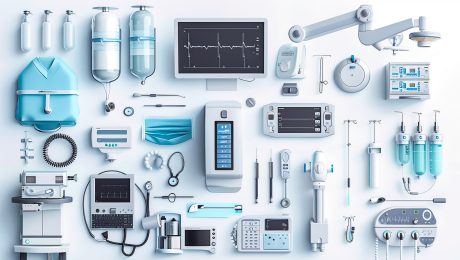BLOG & STORIES
How to Safely Transport Medical Drugs
Transporting medical drugs requires precision and attention to detail to ensure their safety and efficacy. Here’s a comprehensive guide tailored for Elis Ilac on the best practices:
Pre-Transport Planning: Set Up for Success
Identify each drug’s sensitivity to temperature, light, and humidity. Ensure optimal conditions during transit by understanding these requirements.
Hire professionals experienced in medical drug transportation. Verify that the company complies with Good Distribution Practices (GDP) and other relevant regulations.
Packaging and Preparation: Secure Your Shipment
Use materials like insulated containers, gel packs, and dry ice for temperature-sensitive drugs. Ensure compliance with industry standards and regulations.
Include handling instructions, storage conditions, and warnings on labels. Use barcodes or QR codes for tracking and ensuring proper handling.
Transportation Process: Monitor Every Step
Choose vehicles with climate control systems. Refrigerated trucks or vans are ideal for temperature-sensitive drugs. Ensure regular servicing and calibration.
Implement Continuous Monitoring
Use GPS tracking and environmental sensors for real-time monitoring. Immediate corrective actions can be taken if deviations from set parameters are detected.
Arrival Check: Ensure Drug Integrity
Check for signs of damage or temperature excursions upon arrival. Document and report any issues to the transport company.
Store drugs under appropriate conditions. Implement a systematic distribution plan to ensure timely delivery.
Risk Management: Be Prepared for Any Eventuality
Secure a comprehensive insurance policy to protect against financial losses. Ensure coverage for all potential risks specific to medical drug transportation.
Regularly train personnel on handling requirements, emergency procedures, and monitoring equipment. Stay updated on new regulations and best practices.
Conclusion: Maintain Excellence in Drug Transport
By following these steps, Elis Ilac ensures the safe and effective transport of medical drugs, maintaining their integrity and supporting uninterrupted healthcare services. Proper planning, suitable packaging, professional transport services, and continuous monitoring are key to successful drug transportation. Implementing these practices minimizes risks and upholds the quality of essential medical supplies.
- Published in Importing & Sourcing
The Role of Wholesalers in Providing Brand and Generic Medicines in Turkey
The pharmaceutical industry plays a pivotal role in ensuring the health and well-being of populations. In Turkey, the distribution of medicines, both brand-name and generic, is significantly facilitated by wholesalers. These entities are crucial in maintaining the supply chain, ensuring that medications reach pharmacies, hospitals, and clinics efficiently. This blog explores the vital role wholesalers play in the supply of healthcare from Turkey, focusing on how they manage the supply of brand and generic medicines.
Understanding the Pharmaceutical Supply Chain
The pharmaceutical supply chain involves several stages from the manufacturing of medicines to their distribution to the end users. This process includes manufacturers, wholesalers, distributors, pharmacies, and healthcare providers. Wholesalers are a key intermediary in this chain, linking manufacturers with healthcare providers.
Wholesalers in the Pharmaceutical Industry
Wholesalers purchase large quantities of medicines from manufacturers and distribute them to pharmacies and healthcare facilities. This bulk purchasing allows them to negotiate lower prices, which can then be passed on to pharmacies and ultimately to patients. In Turkey, wholesalers play a critical role in ensuring the availability of a wide range of medicines, including both brand-name and generic drugs.
The Supply of Brand Medicines
Brand medicines, also known as branded or originator drugs, are typically more expensive due to the research, development, and marketing costs associated with them. These drugs are patented and exclusively manufactured by the company that developed them, at least until the patent expires. Wholesalers in Turkey are instrumental in managing the supply of these medicines.
Ensuring Availability
Wholesalers ensure that brand medicines are available in sufficient quantities across the country. They maintain stock levels, manage logistics, and ensure timely deliveries to pharmacies and hospitals. This is particularly important for medications that are critical for chronic conditions or life-threatening illnesses.
Negotiating with Manufacturers
Wholesalers often have strong relationships with pharmaceutical manufacturers. They negotiate terms of purchase, which can include discounts and favorable payment terms. This not only helps in reducing the cost burden on pharmacies but also ensures that even high-cost brand medicines are available to the Turkish population.
Managing Imports
Many brand medicines are imported into Turkey. Wholesalers handle the complexities of importing these drugs, which involves regulatory compliance, customs clearance, and logistical challenges. Their expertise ensures that imported brand medicines are available without significant delays.
The Role of Wholesalers in Generic Medicines
Generic medicines are equivalent to brand medicines in terms of dosage, strength, route of administration, quality, performance, and intended use. They become available after the patent protections on brand-name drugs expire. In Turkey, the availability and affordability of generic medicines are largely dependent on the efficiency of wholesalers.
Promoting Affordable Healthcare
One of the primary benefits of generic medicines is their lower cost compared to brand-name drugs. Wholesalers play a crucial role in promoting affordable healthcare by ensuring that generic medicines are widely available. By purchasing generics in bulk, wholesalers can pass on cost savings to pharmacies, which in turn can offer these medicines at lower prices to patients.
Ensuring Quality and Safety
While generic medicines are cost-effective, it is essential to ensure they meet quality and safety standards. Wholesalers in Turkey are responsible for vetting suppliers and ensuring that the generic medicines they distribute are produced in compliance with regulatory standards. This is crucial for maintaining public trust in the healthcare system.
Expanding Access
Wholesalers help expand access to essential medicines by distributing generics to even the most remote areas of Turkey. Their extensive distribution networks ensure that all regions, regardless of their geographic challenges, have access to necessary medications.
Challenges Faced by Wholesalers
Despite their crucial role, wholesalers in Turkey face several challenges in maintaining a steady supply of medicines.
Regulatory Compliance
The pharmaceutical industry is heavily regulated to ensure the safety and efficacy of medicines. Wholesalers must navigate complex regulatory requirements, including licensing, quality assurance, and reporting obligations. Compliance with these regulations is essential but can be resource-intensive.
Supply Chain Disruptions
Global events, such as the COVID-19 pandemic, have highlighted the vulnerabilities in supply chains. Wholesalers must manage risks associated with supply chain disruptions, such as delays in manufacturing, transportation challenges, and shortages of raw materials.
Price Fluctuations
The cost of medicines can fluctuate due to various factors, including changes in raw material prices, exchange rates, and policy changes. Wholesalers must manage these fluctuations to ensure a stable supply without compromising on affordability.
Counterfeit Medicines
The proliferation of counterfeit medicines is a significant challenge. Wholesalers must implement robust measures to detect and prevent the distribution of counterfeit drugs, which can pose serious health risks to patients.
The Future of Pharmaceutical Wholesaling in Turkey
The role of wholesalers in Turkey’s pharmaceutical industry is likely to evolve with advancements in technology and changes in healthcare needs.
Technological Integration
The integration of technology in supply chain management can enhance the efficiency of wholesalers. Technologies such as blockchain can improve transparency and traceability in the supply chain, reducing the risk of counterfeit medicines. Additionally, data analytics can help wholesalers predict demand and optimize inventory management.
Personalized Medicine
The rise of personalized medicine, which tailors treatment to individual patient characteristics, will require wholesalers to adapt their supply chains. This could involve managing smaller batches of specialized drugs and ensuring timely distribution to meet specific patient needs.
Sustainability Initiatives
Sustainability is becoming increasingly important in all industries, including pharmaceuticals. Wholesalers can contribute to sustainability by adopting eco-friendly practices in their operations, such as reducing waste, optimizing transportation routes to lower emissions, and promoting the use of environmentally friendly packaging.
Strengthening Local Manufacturing
To reduce dependency on imports and enhance supply chain resilience, there is a growing emphasis on strengthening local pharmaceutical manufacturing in Turkey. Wholesalers will play a critical role in distributing locally produced medicines, ensuring they reach all parts of the country efficiently.
Conclusion
Wholesalers are indispensable in the pharmaceutical supply chain, ensuring that both brand and generic medicines are available to meet the healthcare needs of Turkey’s population. They navigate complex challenges, from regulatory compliance to supply chain disruptions, to provide reliable and affordable access to essential medicines. As the industry evolves, wholesalers will continue to adapt, leveraging technology and sustainability initiatives to enhance their operations. Their role in the supply of healthcare from Turkey remains pivotal, contributing significantly to the country’s overall health and well-being.
- Published in Importing & Sourcing
Top Strategies for Efficient and Cost-Effective Medical Device Wholesaling
In the fast-paced world of medical device wholesaling, efficiency and cost-effectiveness are crucial to stay competitive. Elisilac, a leading medical device importer, importer of medical supplies, diagnostic equipment supplier, understands the importance of implementing top strategies to optimize their operations. In this blog, we will explore the key strategies that Elisilac utilizes to excel in the industry, providing insights to help other medical device wholesalers achieve efficiency and cost-effectiveness.
Streamlining Supply Chain Management
Efficient supply chain management is essential for successful medical device wholesaling. Implement the following strategies:
- Efficient inventory management: Accurately track inventory levels and demand patterns to minimize excess inventory and reduce carrying costs.
- Automated ordering systems: Utilize automated systems to streamline the procurement process and ensure timely delivery of products.
- Real-time data analytics: Leverage advanced analytics tools to gain valuable insights into demand patterns, enabling proactive decision-making.
- Strong supplier relationships: Establish strong partnerships with reliable suppliers, negotiating favorable terms and ensuring a smooth flow of products.
Effective Pricing Strategies
Pricing plays a crucial role in medical device wholesaling. Optimize pricing with the following strategies:
- Market research: Conduct thorough market research to understand pricing trends and competitive landscapes, enabling you to set competitive prices.
- Dynamic pricing models: Adjust prices based on market conditions and demand fluctuations, maximizing profitability while remaining competitive.
- Volume-based pricing structures: Offer tiered pricing options based on order volume, incentivizing customers to increase their purchases.
- Negotiating favorable contracts: Negotiate contracts with manufacturers to secure better pricing terms, allowing you to pass on cost savings to customers.
Optimizing Logistics and Distribution
Efficient logistics and distribution ensure timely delivery of medical devices. Focus on the following strategies:
- Logistics software: Utilize advanced logistics software to optimize route planning, minimize shipping costs, and enhance delivery efficiency.
- Just-in-time inventory management: Adopt a just-in-time approach to minimize storage costs and reduce the risk of obsolete inventory.
- Efficient packaging and shipping methods: Invest in packaging solutions that protect products during transit while optimizing space utilization to reduce shipping costs.
- Collaboration with third-party logistics providers: Partner with reliable third-party logistics providers to leverage their expertise and ensure efficient delivery operations.
Embracing Technology
Technology adoption streamlines operations and provides a competitive edge. Embrace the following technological strategies:
- Integrated ERP system: Implement an integrated Enterprise Resource Planning (ERP) system to streamline various processes, such as order management, inventory control, and financial management.
- Cloud-based solutions: Utilize cloud-based solutions to enhance data accessibility, promote collaboration, and improve overall operational efficiency.
- Automation: Automate repetitive tasks, such as order processing and inventory tracking, freeing up resources for more value-added activities.
- Artificial intelligence for predictive analytics: Leverage artificial intelligence and predictive analytics to forecast demand patterns, allowing proactive inventory management and optimized purchasing.
Enhancing Customer Service
Exceptional customer service builds strong relationships and fosters loyalty. Focus on the following strategies:
- Personalized support and guidance: Offer personalized assistance to customers, providing product recommendations and addressing specific needs.
- Clear communication channels: Establish clear communication channels, ensuring prompt responses to customer inquiries and concerns.
- After-sales services and support: Provide comprehensive after-sales services, including technical support, training, and warranty assistance.
- Customer feedback and satisfaction programs: Actively seek customer feedback and utilize it to improve products, services, and overall customer satisfaction.
Investing in Staff Training and Development
A skilled and motivated workforce is crucial for success. Invest in the following strategies:
- Ongoing training: Provide regular training sessions to employees, keeping them updated on industry trends, new products, and best practices.
- Continuous learning and professional development: Encourage employees to pursue continuous learning and offer opportunities for professional development.
- Culture of innovation and creativity: Foster a culture that encourages employees to propose innovative ideas and solutions, driving continuous improvement.
- Recognition and rewards: Recognize and reward high-performing employees, motivating them to excel and contribute to the company’s success.
Collaborating with Healthcare Professionals
Building strong relationships with healthcare professionals is crucial. Prioritize the following strategies:
- Physician and healthcare provider relationships: Foster strong relationships with physicians and healthcare providers, understanding their needs and aligning product offerings accordingly.
- Participation in industry events and conferences: Actively participate in industry events and conferences, networking with healthcare professionals and staying updated on industry trends.
- Collaboration on research and development: Collaborate with healthcare professionals on research and development initiatives, ensuring product offerings meet market needs.
- Educational programs and resources: Provide educational programs and resources to healthcare professionals, empowering them with knowledge about new medical devices and technologies.
Ensuring Regulatory Compliance
Complying with industry regulations and guidelines is essential. Focus on the following strategies:
- Staying up-to-date with regulations: Keep abreast of evolving regulations and guidelines to ensure compliance.
- Robust quality assurance processes: Implement stringent quality assurance processes to maintain product quality and safety standards.
- Regular audits and inspections: Conduct regular audits and inspections to identify any compliance gaps and address them promptly.
- Collaboration with regulatory authorities: Collaborate with regulatory authorities to seek guidance and ensure compliance with changing regulations.
Implementing Sustainable Practices
Sustainability is increasingly important in the medical device industry. Adopt the following strategies:
- Waste reduction and recycling initiatives: Implement waste reduction and recycling programs to minimize environmental impact.
- Energy-efficient technologies: Invest in energy-efficient technologies, reducing energy consumption and carbon footprint.
- Partnerships with environmentally conscious suppliers: Collaborate with suppliers who prioritize sustainability, supporting a more sustainable supply chain.
- Educating stakeholders: Educate stakeholders about sustainable practices, fostering awareness and encouraging collective action.
Monitoring Key Performance Indicators
Monitoring key performance indicators (KPIs) is essential for measuring success and identifying areas for improvement. Track the following KPIs:
- Sales performance and revenue growth: Monitor sales performance and revenue growth to evaluate market penetration and identify growth opportunities.
- Inventory turnover rates: Analyze inventory turnover rates to ensure optimal inventory management and minimize holding costs.
- Customer satisfaction and retention rates: Track customer satisfaction and retention rates to gauge the effectiveness of customer service strategies.
- Operational efficiency and cost savings: Measure operational efficiency and cost savings to identify areas for optimization and cost reduction.
Conclusion Efficiency and cost-effectiveness are paramount in the medical device wholesaling industry. By implementing these top strategies, medical device wholesalers can enhance their operations, achieve cost savings, and position themselves for long-term growth in the competitive market.
- Published in Importing & Sourcing
Supplying Diagnostic Equipment from Turkey
In the landscape of modern healthcare, diagnostic equipment plays an indispensable role in enabling accurate and timely medical assessments. The global demand for advanced diagnostic tools has been steadily rising, fueled by technological advancements and the growing emphasis on preventive and personalized medicine. In recent years, Turkey has emerged as a significant player in the supply of diagnostic equipment, offering innovative solutions that cater to diverse healthcare needs worldwide. In this blog, we delve into the intricacies of Turkey’s diagnostic equipment industry, exploring its evolution, key players, technological innovations, and the factors driving its success on the global stage.
The Evolution of Turkey’s Diagnostic Equipment Industry
Turkey’s journey in the field of diagnostic equipment has been marked by a relentless pursuit of excellence and innovation. Over the years, the country has invested significantly in research and development, fostering a conducive environment for technological advancement and industrial growth. This proactive approach has enabled Turkish companies to develop cutting-edge diagnostic solutions that rival those of established players in the international market.
The roots of Turkey’s diagnostic equipment industry can be traced back to the early 20th century when the country began to lay the groundwork for its healthcare infrastructure. Since then, there has been a gradual but steady progression, with Turkish manufacturers leveraging advancements in engineering, electronics, and medical sciences to create sophisticated diagnostic devices.
Technological Advancements
The success of Turkey’s diagnostic equipment industry can be attributed in large part to its focus on technological advancements. Leveraging the latest innovations in fields such as artificial intelligence, robotics, and digital health, Turkish companies have developed a wide array of cutting-edge diagnostic solutions.
One notable area of advancement is the integration of AI algorithms into diagnostic imaging systems. By harnessing the power of machine learning and deep learning techniques, manufacturers have enhanced the speed and accuracy of medical imaging interpretation, leading to more precise diagnosis and treatment planning.
Similarly, the advent of miniaturized and portable diagnostic devices has revolutionized point-of-care testing, enabling healthcare providers to conduct rapid diagnostics at the patient’s bedside or in remote settings. These handheld devices offer quick turnaround times and require minimal sample volumes, making them invaluable tools in emergency medicine, primary care, and resource-limited settings.
Furthermore, the rise of telemedicine and remote monitoring has spurred the development of connected diagnostic devices that can transmit data securely to healthcare professionals for real-time analysis and interpretation. This connectivity not only improves patient access to care but also facilitates proactive disease management and early intervention.
Global Impact and Market Dynamics
Turkey’s prowess in diagnostic equipment manufacturing has not gone unnoticed on the global stage. The country has emerged as a key exporter of medical devices, supplying diagnostic equipment to healthcare facilities and professionals in countries around the world.
One of the factors driving Turkey’s success in international markets is its ability to offer high-quality products at competitive prices. By optimizing production processes, leveraging local expertise, and maintaining stringent quality standards, Turkish manufacturers have been able to deliver value to customers while remaining cost-effective.
Moreover, Turkey’s strategic location at the crossroads of Europe, Asia, and the Middle East provides it with a logistical advantage, facilitating efficient distribution networks and timely delivery of diagnostic equipment to global markets.
However, the global landscape of diagnostic equipment is not without its challenges. Intense competition, regulatory requirements, and evolving healthcare policies pose significant hurdles for manufacturers seeking to expand their presence in international markets. Nevertheless, Turkish companies have demonstrated resilience and adaptability, continually innovating and diversifying their product portfolios to meet the evolving needs of healthcare providers worldwide.
Conclusion
In conclusion, Turkey’s diagnostic equipment industry stands as a testament to the country’s commitment to innovation, excellence, and global collaboration in healthcare. Through strategic investments in research and development, technological advancements, and a robust ecosystem of industry players, Turkey has established itself as a formidable force in the supply of diagnostic solutions.
One such notable player in this thriving industry is Elisilac, a leading manufacturer known for its groundbreaking contributions to diagnostic medicine. Elisilac’s dedication to innovation and quality has earned it a prominent position in both domestic and international markets, reflecting Turkey’s overall ethos of pushing the boundaries of medical technology.
As the demand for advanced diagnostic tools continues to grow, Turkish manufacturers like Elisilac are well-positioned to capitalize on emerging opportunities and address the evolving needs of healthcare systems worldwide. By fostering a culture of innovation, embracing new technologies, and maintaining a steadfast commitment to quality and reliability, Turkey is poised to shape the future of diagnostic medicine for years to come.
These blogs may interest you;
- Published in Importing & Sourcing








